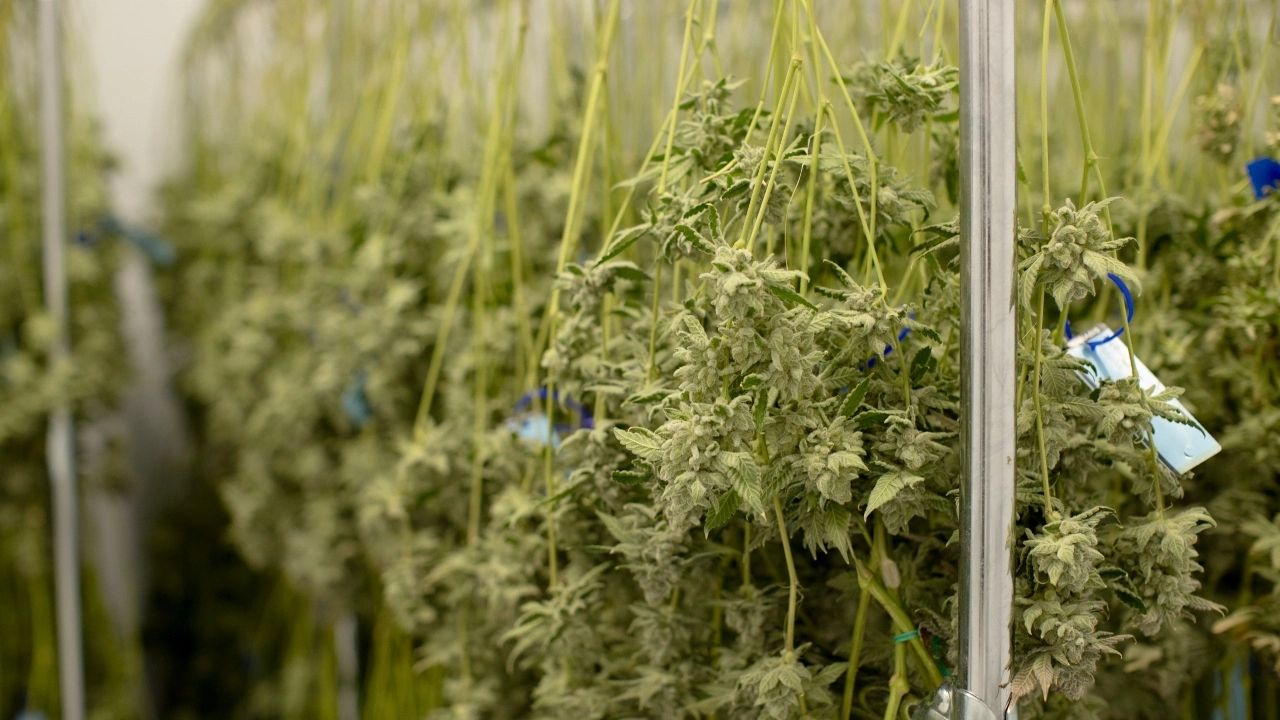A record number of cannabis stores in Canada might have closed or changed hands in 2023, according to new data from regulators in the three largest Canadian marijuana markets.
The data paints a picture of a viciously competitive retail landscape in some parts of the country, while other areas appear to remain in a steady build-out phase.
MJBizDaily asked regulators for data about cannabis retail license cancellations and new licenses issued in Alberta, British Columbia and Ontario, which together account for nearly 75% of regulated marijuana sales in Canada.
The number of cannabis retail licenses that were canceled or not renewed in Alberta during 2023 exceed the number of new store licenses issued – the first time this has happened in the province since Canada legalized marijuana in 2018.
In 2023, 62 cannabis store licenses were canceled or not renewed in Alberta; meanwhile, 48 new cannabis store licenses were issued.
The previous year, Alberta regulators issued 140 new store licenses compared with 73 licenses that were canceled or not renewed by license holders.
The data paints a rough picture of store closures.
Provincial regulator Alberta Gaming, Liquor and Cannabis (AGLC) cautions against drawing a direct line between a store canceling a license and the store exiting the industry, citing several other possibilities, including relocation.
Alberta currently has 749 cannabis providers, and the province is thought to be Canada’s most mature marijuana retail market.
Matt Maurer, chair of the Cannabis Law Group at Torkin Manes in Toronto, said it makes sense to see the number of new store licenses fall in a market such as Alberta, which already is well established.
In a phone interview with MJBizDaily, Maurer said he’s curious to see when the Alberta market will settle into a natural balance between supply and demand for open stores.
“As long as the cancellation number stays high, to me that says there’s still an imbalance. At some point, you should see minimal cancellations – a few a year – and that would be for reasons specific to the stores, not the industry in general,” Maurer said.
“Until we see those numbers drop further on the cancellations, it’s still a sign there’s oversaturation.”
Ontario applications drop
In Ontario, the largest cannabis market in Canada by sales, the number of new store applications has declined every year since 2021.
In 2021, just over 1,000 Retail Store Applications (RSAs) were issued, reflecting high entrepreneurial enthusiasm for the burgeoning industry, according to data shared with MJBizDaily by the Alcohol and Gaming Commission of Ontario (AGCO), the provincial regulator.
The following year, the number of RSAs in Ontario dropped by more than 50%, to 429 new RSAs, before falling again in 2023 to 269.
License cancellation numbers haven’t risen as quickly.
In 2021, eight RSAs were canceled.
The figure grew to 106 in 2022 and then fell to 92 in 2023.
The data suggests there are still more stores entering the Ontario market than there are exiting.
Krista Raymer, founder of Toronto-based cannabis retail consultancy Vetrina Group, noted that new municipalities in the province opened their doors to legal cannabis stores in 2023 after previously having “opted out.”
“You wouldn’t see that store growth number if it wasn’t for the fact that communities went from ‘opting out’ to ‘opting in’ (in 2023) to the regulated cannabis market,” Raymer told MJBizDaily.
Mississauga, the sixth-largest Canadian city by population, reversed its cannabis store ban last year.
Raymer said another factor driving new store openings in Ontario’s challenging business environment is entrepreneurs finding opportunities outside the Toronto area’s heavily saturated market.
The AGCO has a formal process to ensure operators take the necessary steps to close a store, such as dealing with outstanding inventory.
That inventory either must be sold before closing or destroyed, as outlined in the Registrar’s Standards for Cannabis Retail Stores.
British Columbia approvals fall
In British Columbia, the number of new cannabis licenses approved also has been declining.
The province issued 47 new store licenses last year, lower than the 2022 figure and roughly 50% less than the 98 permits issued in 2021, according to Liquor and Cannabis Regulation Branch data.
In recent years, the following number of cannabis retail licenses were canceled or expired in British Columbia:
- 2021: 12.
- 2022: 6.
- 2023: 17.
The province had 493 stores in operation as of Friday.
The Ministry of Public Safety and Solicitor General, which shared the data, said the provincial system does not directly track store closures.
As in Alberta and Ontario, the data about British Columbia’s expired or canceled licenses should be viewed only as a rough gauge for store exits.
Community Savings Credit Union CEO Mike Schilling told MJBizDaily that British Columbia is experiencing some of the same problems seen in other Canadian provinces – namely store overcrowding.
“I think some of this is the fact that this is a nascent industry. You saw a boom; there’s a lot of hype, and there’s going to be a correction,” Schilling told MJBizDaily.
He believes regulated stores still experience tough competition from the illicit market.
“The other part of it is particular to cannabis … when you’ve got a retail industry that is (competing) against a well-established legacy industry and the federal legislation is not supporting retailers enough to outperform legacy stores and online stores,” Schilling said.
“We passed the legislation, but what we would like to see is the political will to finish the job,” he said of handling the illicit market.
“We’ve got unfinished business when we talk about First Nations’ sovereignty in the retail (cannabis) market. We want to support that.”
The spokesperson for the Ministry of Public Safety said license dormancy was not included in the analysis, even though it occasionally results in a store permanently closing.
A license becomes dormant when the establishment stops operating, as licensees must notify the LCRB within 10 days if the business will be closed for longer than 90 days.
Stores do not need to report closures of fewer than 90 days, and a license can remain in dormant status for any reason for up to two years.
A licensee also might choose to close its doors before its license expires.
For example, if a license expired in March 2021, the license holder could have closed in November 2020 and let the license expire, per the standard renewal period.
Cannabis licensees also have one year after the expiration date to reinstate their licenses, so the number of dormant or not-renewed licenses might fluctuate throughout the year.
Stores strategize
The scramble to open a cannabis store in any location where an entrepreneur could secure a lease has passed, experts say, as license holders have become wise to other factors.
“Not only are people looking at whether competition exists, but what kind of competition is there?” said Raymer, the retail expert.
“I think there is a refound focus on regional success. Regional success looks like being efficient with your resources and understanding where your store placement is.”
Rather than owning two stores located hundreds of miles apart, she said entrepreneurs are looking to boost efficiency by choosing locations that mean stores can share resources.
Raymer said having one location is a difficult path to go down, because owning multiple stores potentially offers scale and gives a competitive advantage.
“It’s very difficult to have a low-volume store and hire the best leadership – whereas, if you have a couple stores, you can be efficient and they can cover multiple locations.
“Because of that, there’s a renewed focus on getting a certain number of stores in a portfolio to get scale.”
Matt Lamers can be reached at matt.lamers@mjbizdaily.com.





